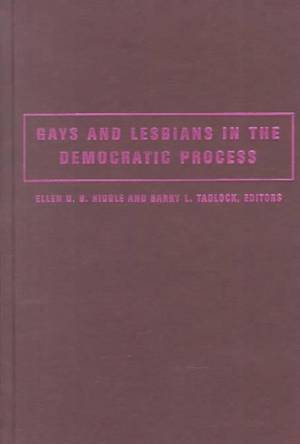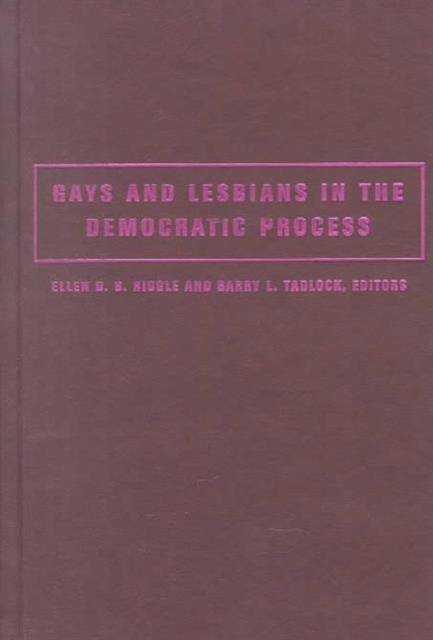
- Afhalen na 1 uur in een winkel met voorraad
- Gratis thuislevering in België vanaf € 30
- Ruim aanbod met 7 miljoen producten
- Afhalen na 1 uur in een winkel met voorraad
- Gratis thuislevering in België vanaf € 30
- Ruim aanbod met 7 miljoen producten
Zoeken
Gays and Lesbians in the Democratic Process
Public Policy, Public Opinion, and Political Representation
€ 228,95
+ 457 punten
Omschrijving
From "Don't ask, don't tell" to the Defense of Marriage Act, from the Employment Non-Discrimination Act to the continued battle against AIDS, gays and lesbians have been in the spotlight during the Clinton administration. They now form a political interest group as well as a social community, and political scientists, legal scholars, and the media have started speculating on the impact of this newfound prominence. Gays and Lesbians in the Democratic Process puts theory to the test by compiling the current research of political scientists working in an empirical tradition. The articles in this volume extend and expand on a growing body of research on the movement for lesbian, gay, bisexual, and transgendered equality in the political world, with a focus on the areas of public policy, public opinion, and political representation. Contributors tackle such questions as: What factors determine the adoption and effectiveness of nondiscrimination policies based on sexual orientation? How do variables of education, religion, and urban location influence public attitudes toward lesbians and gays? How has the emergence of the Christian Right paradoxically helped to consolidate the gay and lesbian movement? How are opportunities for political participation used to advance or curtail lesbian and gay rights? How will voters evaluate openly gay and lesbian candidates for public office? This book will be a valuable resource for students and scholars of American politics and gay and lesbian studies as well as for community activists.
Specificaties
Betrokkenen
- Uitgeverij:
Inhoud
- Aantal bladzijden:
- 384
- Taal:
- Engels
- Reeks:
Eigenschappen
- Productcode (EAN):
- 9780231115841
- Verschijningsdatum:
- 6/10/1999
- Uitvoering:
- Hardcover
- Formaat:
- Genaaid
- Afmetingen:
- 152 mm x 229 mm
- Gewicht:
- 603 g

Alleen bij Standaard Boekhandel
+ 457 punten op je klantenkaart van Standaard Boekhandel
Beoordelingen
We publiceren alleen reviews die voldoen aan de voorwaarden voor reviews. Bekijk onze voorwaarden voor reviews.










